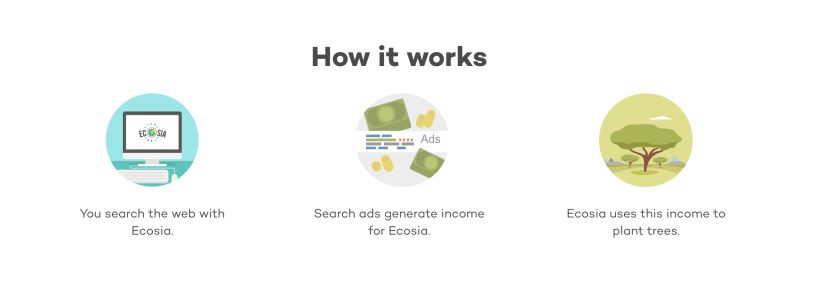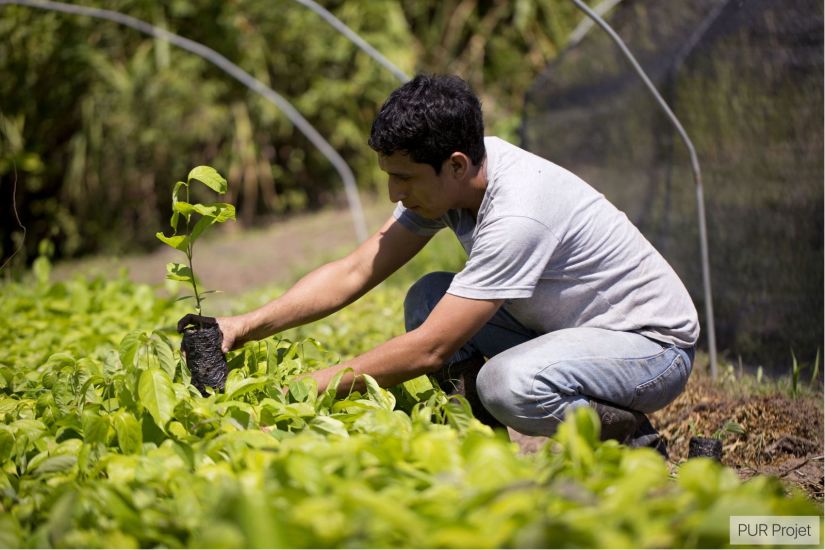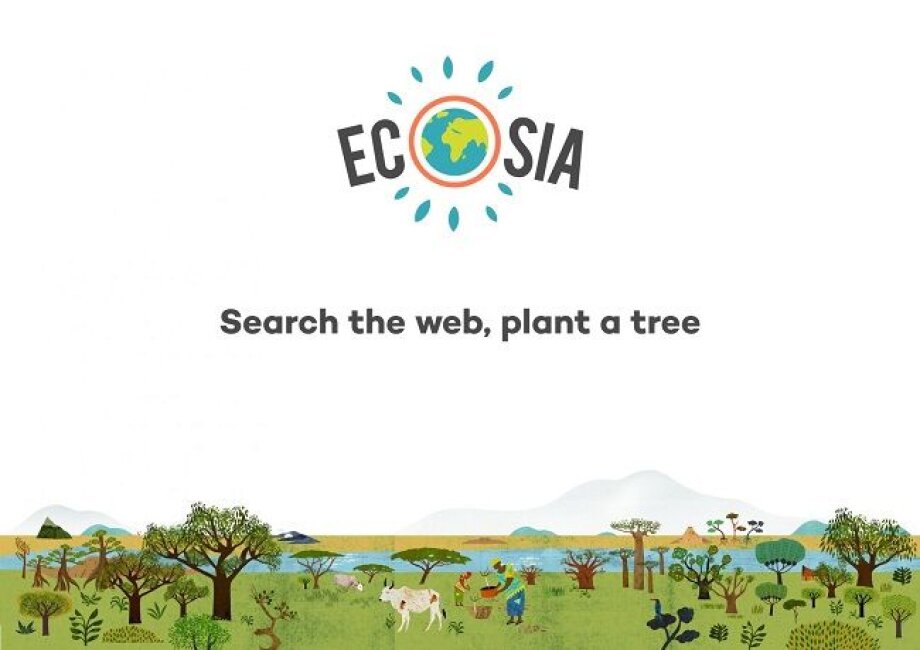If the internet were a country it would be in third place in terms of electricity use after China and the US, a Greenpeace report has revealed. The IT sector’s energy footprint is growing constantly and, according to a peer-reviewed study, by 2025 the ICT industry could be responsible for consumption of 20 percent of all electricity and for 5.5 percent of the world’s carbon emissions. In response, top companies like Google have committed to switching to renewable energy sources.
Electricity consumption (in TWh per year)
China 6,300
US 3,900
The internet approx. 2,000
India 1,400
Russia 1,100
Source: Greenpeace
German startup Ecosia has gone one step further – the company created a search engine aimed at removing CO2 from the atmosphere. Ecosia donates about 80 percent of its profits to finance planting trees around the world. After a user installs the search engine, an icon with a tree appears in the top right corner. This is a counter showing how many trees that person has helped to plant by browsing the web. In some ways, the project is similar to “Pajacyk” organized by Polish Humanitarian Action, where every user that clicks on a wooden toy on the website generates support for children in need.
Like any other search engine, Ecosia makes money from clicks on advertisements. On average, one search generates a few cents, and it takes about 50 searches to finance one tree. With the growing number of users, the company now plants a new tree nearly every second, while back in 2014 it took one minute. The reforestation projects are spread across the globe. Ecosia plants fruit and nut trees along a river in Ghana to restore water levels. It has a project in Uganda to rescue chimpanzees’ habitats. In Burkina Faso the new trees improve soil fertility and turn the desert green. Last year, Ecosia launched its first project in Europe; it supports a group of farmers and entrepreneurs in Spain who work on restoring landscapes and biodiversity.

The search engine is advertised as being well suited for, among others, coffee and chocolate lovers. Ecosia plants coffee trees in areas damaged by the narcotics trade and helps cocoa farmers in Peru. The search engine is also privacy-friendly: it does not collect users’ personal data and keeps search results for only seven days.

“Ecosia is a tiny step each individual can make in the face of a seemingly overwhelming problem,” said the company, which now has over 7 million users. However, would Ecosia meet the needs of users in Poland, where Google has over 95 percent of the market? Ecosia search results are powered by Bing, the second-largest search engine in the US after Google. The simple test search “What to do in Warsaw” written in Polish, however, gave different results for Google and Ecosia. Both found popular webpages, but the market leader had a bigger list of relevant links for those who want to discover the city. Other searches led to a similar outcome. Even though Google beats Ecosia in terms of search variety, the green search engine appeals to users by using 100 percent renewable energy and it makes the very convincing argument that each search request removes about 1kg of CO2 from the atmosphere.
Global versus local
Ecosia is eyeing international expansion in various markets. In the UK, for example, some universities are adopting Ecosia as the default search engine for their students and professors. To do the same in Poland, Ecosia would have to overcome a very strong loyalty to Google. The situation is different in Russia where there is fierce competition between Google and Yandex, and in China local search engine Baidu dominates the market, whereas in Poland Google’s leadership has never been seriously challenged. The first Polish multi-search engine, Emulti, was launched in 1991 and was active until 2005. Emulti aggregated the search outcomes from several global and Polish websites such as Yahoo!, Interia.pl or Wirtualna Polska. Some other Polish search engines that took on the challenge and failed were Netoskop, Sieciowid and NetSprint. NetSprint managed to get almost 20 percent of the market in 2004. However, when eight years later Wirtualna Polska chose collaboration with Google over NetSprint, the latter was doomed.
The Institute of Computer Sciences (Polish Academy of Sciences) made a recent attempt to create a Polish search engine called Nekst. Researchers created a system that went beyond simple key word searches by also analyzing sentence structure and meaning. The Institute created a database with about 800 million documents. Ultimately, the idea for a new search engine was abandoned and the creators altered their project to support antiplagiarism systems, where it is now used. “We did not want to compete with the world giants but to generate some added value,” said Jacek Koronacki, Director of the Institute.
Ecosia will in all likelihood remain a niche product in Poland rather than an actual rival to Google. But with the rising pressures of climate change and youth protests unfolding across Europe, interest in eco search engines is growing.



















